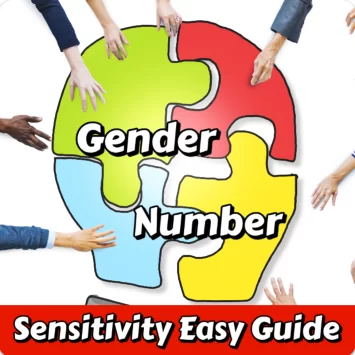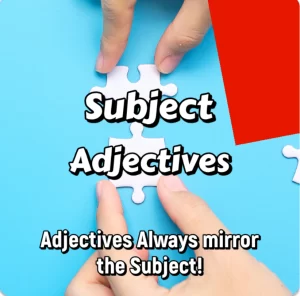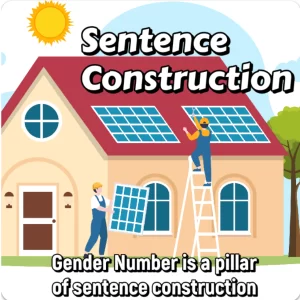
Spanish Adjectives Gender Number Sensitivity
What are Spanish adjectives:
Spanish adjectives are words that describe a Spanish noun; Spanish adjectives:
- Are descriptive words
- They help listeners “see” what you see & how you see it!
- Are always gender number sensitive so must match Spanish nouns
- Spanish nouns dictate the gender & number of your Spanish adjective!

Spanish in Atlanta covers Spanish adjectives in great detail in our Spanish 4 classes. Want professional support, feedback & practice? Join one of our Spanish classes.

Want to learn Spanish with Us?
Our Spanish courses are all conducted live via Zoom! Practice your Spanish & get professional feedback and support! We also offer tutoring for self study students that need a little help to get unstuck.
Talk to our professional Spanish instructor 1 on 1 and get the answers you need before signing up!
Get a Free Spanish Assessment & Placement Test!
Spanish in Atlanta’s classes, lessons and tutoring are the highest rated Spanish language classes in Atlanta, Chicago, Houston & all over the USA!









11 Comments
I love how you approached this topic—great job! Gender number sensitivity can get complicated but I found your post to be great- simple and to the point! I echo the others. I am interested in your free Spanish worksheets for practicing Spanish especially the Spanish adjectives.
I enjoyed reading this, you’ve covered everything so well. Can’t wait to read your other Spanish learning posts.
Hola Leslie! We are so happy to hear that! Let us know what other Spanish learning material you’d like to see here in Spanish in Atlanta’s blog
I came across the adjective “grande,” and it doesn’t seem to change for gender. You say “el coche grande” and “la casa grande,” so it stays the same for both masculine and feminine nouns.
This has me wondering: are all Spanish adjectives sensitive to gender and number, or are there other adjectives like “grande” that don’t change based on gender? It would be really helpful to know and also is there a way to know which Spanish adjectives are neutral?
Also, in what level of Spanish class are Spanish adjectives taught in Spanish in Atlanta? Is it something introduced early on, or do you dive deeper into these rules in more advanced classes? I’d love to know if there are any other exceptions to the gender agreement rule that I should be aware of as I continue learning. Thanks in advance maestra!
Hola Deidra!
Yes! Most Spanish adjectives are gender number sensitive but there are exceptions. Grande is one of those Spanish adjectives that are only number sensitive not gender. A good tip to remember is most adjectives in the Spanish language that end in the vowel “E” are going to be neutral! 🙂 Spanish in Atlanta teaches Spanish adjectives in great detail in Spanish 4. We also cover gender number sensitivity in our level I beginner Spanish classes.
I was wondering if Spanish in Atlanta could provide a list of the most common Spanish adjectives. It would really help to have a solid list to focus on while I’m studying. Also, what are some of the best ways to memorize adjectives in Spanish? I’ve been trying to practice with flashcards, but I’m looking for more tips or strategies to really make them stick.
Hola Jayson, we will try to provide a simple list of most common Spanish adjectives as soon as we can. We are a small Spanish language studio and finding the time can be very tough. Thank you for your comment. It’s important for us to know what Spanish language material people are looking for. Best way to memorize any Spanish vocabulary including adjectives is to use images. Don’t translate the Spanish words into your native language but associate the Spanish word with the image that represents the Spanish adjective so as an example:
COCHE ROJO Y GRANDE= ( get a picture of a coche that has these characteristics) so that you associate the adjectives with an obvious visual.
How many Spanish adjectives don’t follow the typical gender/number agreement rules? Are there a lot of them or just a few? I’d love to understand this better and learn if there’s a list of Spanish adjectives that don’t change based on gender or number.
Do you have any free worksheets or resources to help me practice Spanish adjectives? I’d love to work on identifying which adjectives change for gender and number and which ones don’t. Thanks so much.
Hola there are a number of them. Many Spanish adjectives don’t follow the gender number rules but let’s say 85% of them do. Best free tip I mentioned in another comment is that most adjectives that end in E are usually gender neutral.
Spanish in Atlanta will create more free content and free worksheets. Please support and comment. This will help us make the time to invest in creating free worksheets! Gracias!
While studying Spanish, I’ve been trying to understand gender and number agreement, but I’m curious—what are some things in Spanish that aren’t gender or number sensitive? I know that many Spanish nouns and Spanish adjectives change, but are there any that stay the same regardless of gender or plurality? I’d love to learn more about these exceptions so I can improve my understanding. I appreciate any help or examples you can provide!
Hola Tim, All Spanish nouns, pronouns, adjectives, Spanish articles etc… are gender number sensitive ( with exceptions) but things like Spanish conjunctions, adverbs and prepositions are some examples of Spanish words that aren’t typically gender number sensitive. The Spanish language is pretty clean and easy to learn because of the simple rules that don’t change. However we do have a few exceptions.